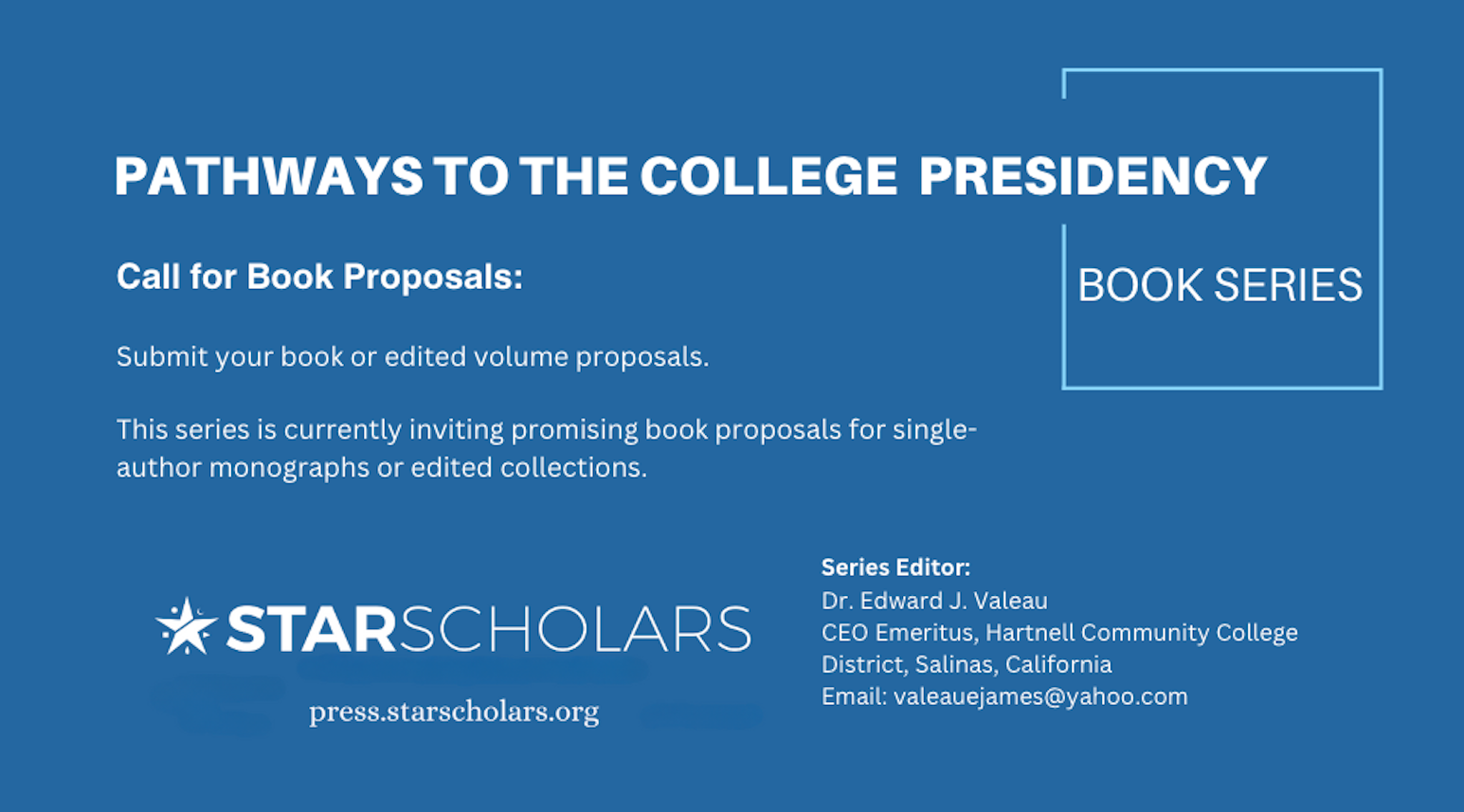Archives
-

American Journal of STEM Education: Issues and Perspectives
Vol. 12 (2025)This volume presents timely, interdisciplinary scholarship addressing critical challenges and innovations in STEM education across global contexts. This issue explores student equity, culturally responsive pedagogy, and technology-enhanced learning environments through diverse methodological lenses.
Featured articles examine the impact of teacher inexperience on student exclusion in Texas high schools, the intersection of trauma and mathematics learning among African American students, and the role of teaching practices in fostering critical thinking in Japanese classrooms. Further contributions highlight community-industry partnerships in STEM engagement through solar energy education, the integration of AI-driven adaptive learning in calculus instruction, and the cultural dynamics influencing CSR strategies of multinational corporations in Nepal.
-
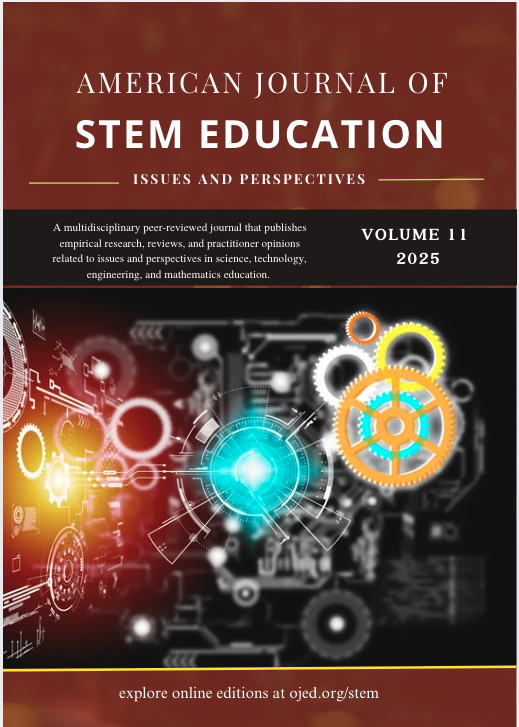
American Journal of STEM Education: Issues and Perspectives
Vol. 11 (2025)This volume of the American Journal of STEM Education: Issues and Perspectives presents practical insights addressing critical challenges and innovations across science, technology, engineering, and mathematics education. Contributors explore emerging trends, equity in STEM access, curriculum development, and technology integration in teaching and learning. The volume serves as a valuable resource for educators, researchers, and policymakers committed to advancing STEM education.
Print copies available in the following countries: US, UK, DE, FR, ES, IT, NL, PL, SE, JP, CA, AU
-
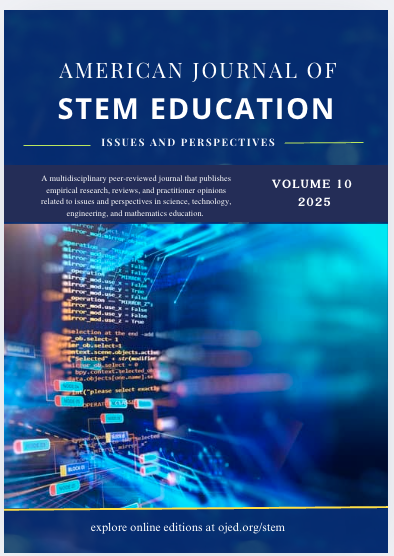
American Journal of STEM Education: Issues and Perspectives
Vol. 10 (2025)This latest volume showcases interdisciplinary research that advances understanding and practice in STEM education across diverse contexts. Featured studies explore the transformative role of emerging technologies in revolutionizing STEM instruction, the influence of perceived belonging on YouTube usage among rural students, and socioeconomic disparities in school discipline outcomes. Additional contributions examine the effectiveness of school health services in Nepal, the impact of program titles on academic identity in construction education, and scholarly reflections on the integration of artificial intelligence in higher education. Together, these articles offer timely insights and practical implications for educators, policymakers, and researchers committed to equity, innovation, and excellence in STEM education.
-
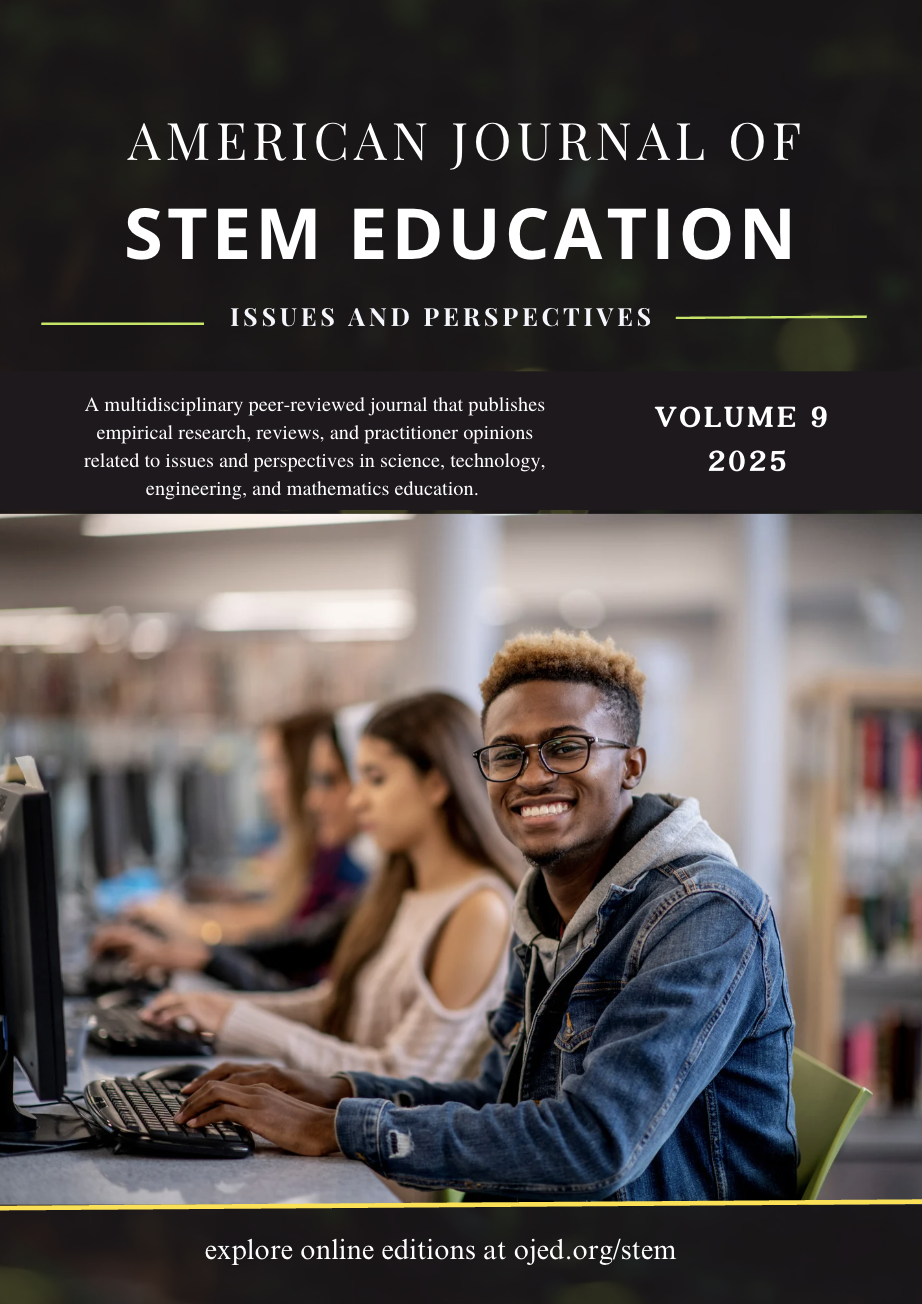
American Journal of STEM Education: Issues and Perspectives
Vol. 9 (2025)Featuring 15 contributing authors, this volume offers critical insights into current issues and innovations in STEM teaching and learning. Topics include math readiness by language status, AI-driven strategies to reduce math anxiety, and the impact of caffeine on student stress. Additional studies explore digital tools for graduate supervision, the role of mentorship in shaping STEM careers, and a model of online learning dexterity. This volume provides evidence-based perspectives for advancing equity, engagement, and success in STEM education.
Print copies available in the following countries: US, UK, DE, FR, ES, IT, NL, PL, SE, JP, CA, AU
-
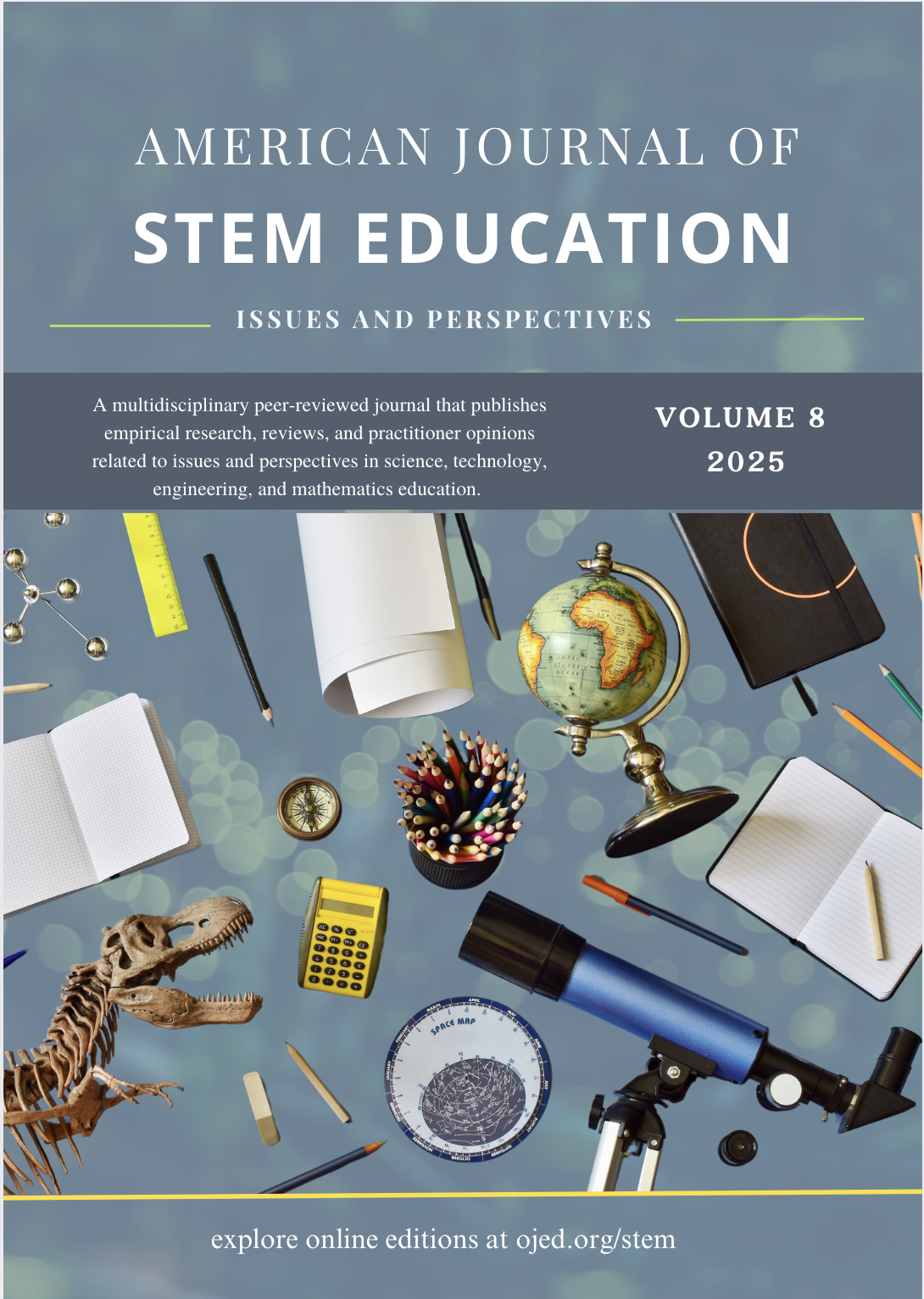
American Journal of STEM Education: Issues and Perspectives
Vol. 8 (2025)Looking for actionable insights in STEM education? Vol. 8 (2025) of the American Journal of STEM Education: Issues and Perspectives provides just that. This issue delves into real-world challenges, offering research-backed strategies for mitigating job-hopping in IT, improving faculty retention at community colleges, and enhancing project-based learning. Explore how to integrate cultural responsiveness into statistics and understand the role of mindfulness in addressing financial trauma. Gain practical knowledge to improve your teaching, research, and practice in STEM fields.
-
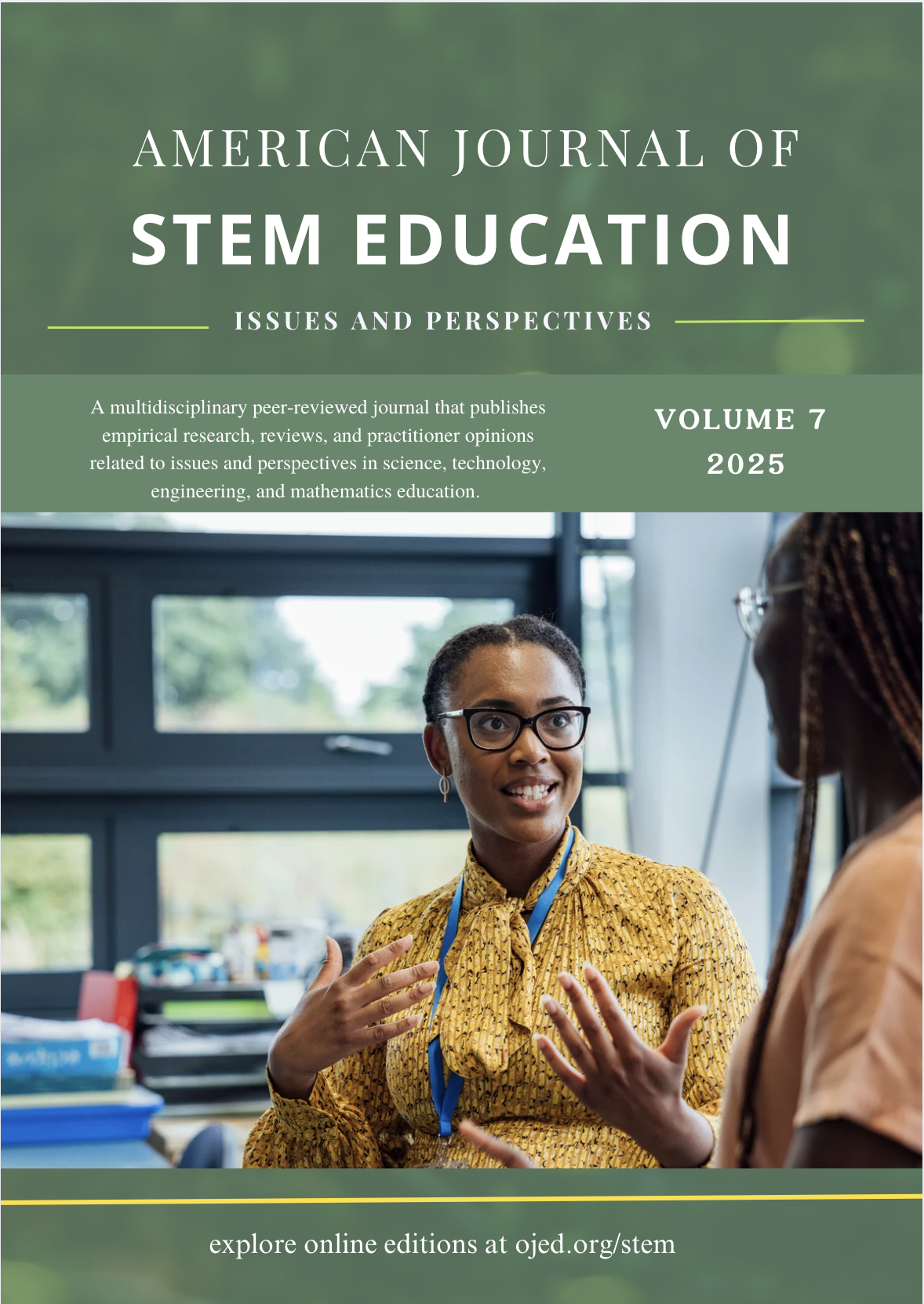
American Journal of STEM Education: Issues and Perspectives
Vol. 7 (2025)The latest issue of the American Journal of STEM Education: Issues and Perspectives explores innovative approaches to STEM learning, with a strong focus on artificial intelligence, mathematics education, and educational equity. Highlights include AI integration in STEM classrooms, professional development in AI literacy, the role of history in mathematics self-efficacy, and discovery learning experiences. Additionally, the issue features insights into community colleges in Sierra Leone as a solution to youth unemployment.
Download eBook (pp. 128)
-
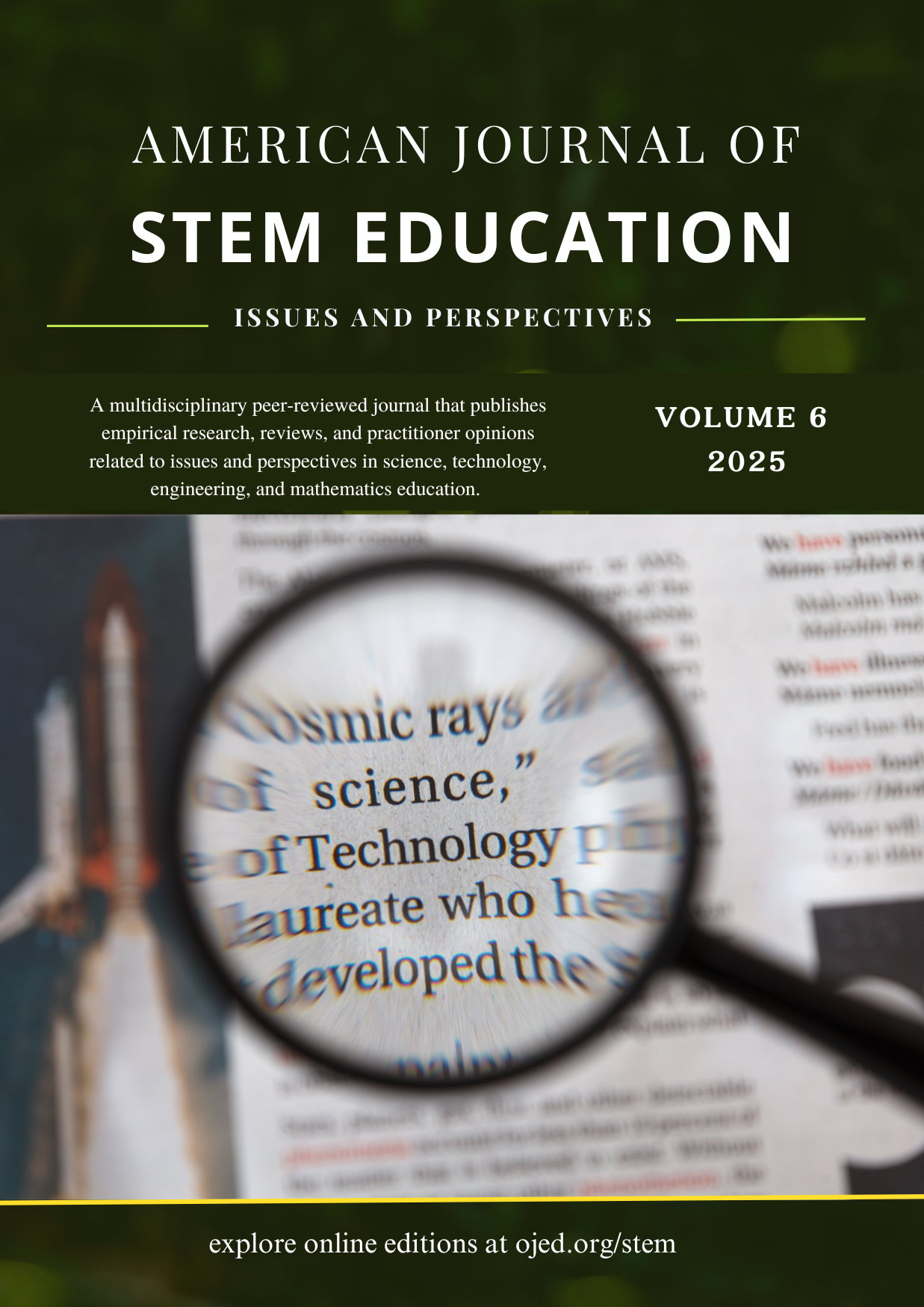
American Journal of STEM Education: Issues and Perspectives
Vol. 6 (2025)The American Journal of STEM Education: Issues and Perspectives (Vol. 6, 2025) presents a diverse collection of research exploring AI innovation, STEM education strategies, workforce development, and interdisciplinary collaboration. This issue features studies on Chinese universities' advancements in AI, strategies for teaching academic writing in STEM, doctoral students’ insights on leveraging AI tools, the impact of ergonomic practices on employee performance, and a framework for diversifying the AI talent pipeline through HBCU-industry-government partnerships. Additionally, a unique study applies couple therapy principles to strengthen co-founder relationships in STEM ventures. This volume offers valuable insights for educators, researchers, and professionals shaping the future of STEM education and innovation.
-
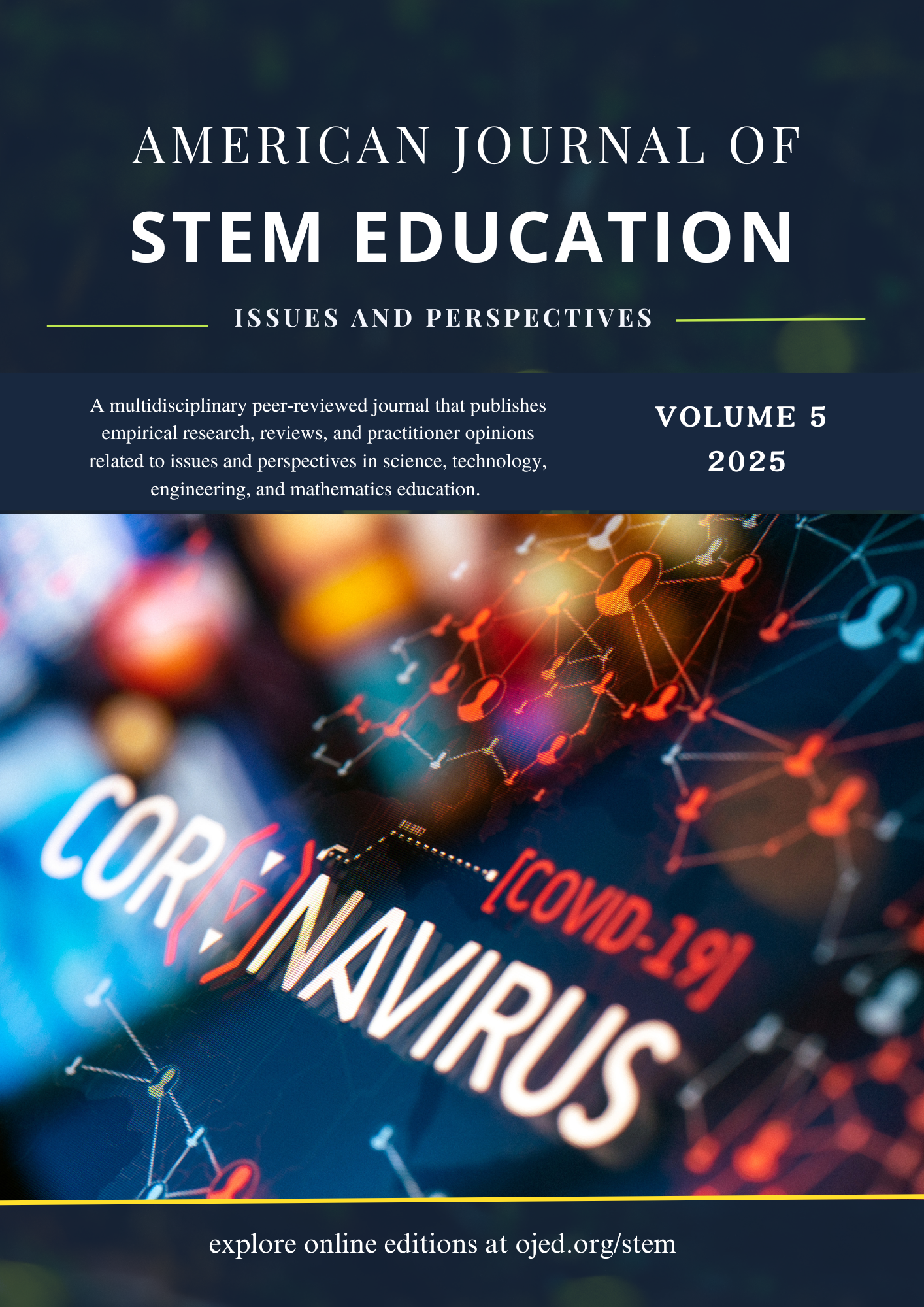
American Journal of STEM Education
Vol. 5 (2025)This issue explores the integration of technology in learning, with a focus on the impact of online education during the COVID-19 pandemic and the use of AI-generated visuals to enhance student understanding of STEM careers. It delves into ethical decision-making and academic integrity in STEM fields, examining challenges faced by students in professional programs. Advancements in interdisciplinary research are featured through the application of cognitive science and neuroimaging in construction project management. Additionally, the issue offers insights into the mathematics performance of emergent bilingual students, comparing pre- and post-pandemic outcomes.
-
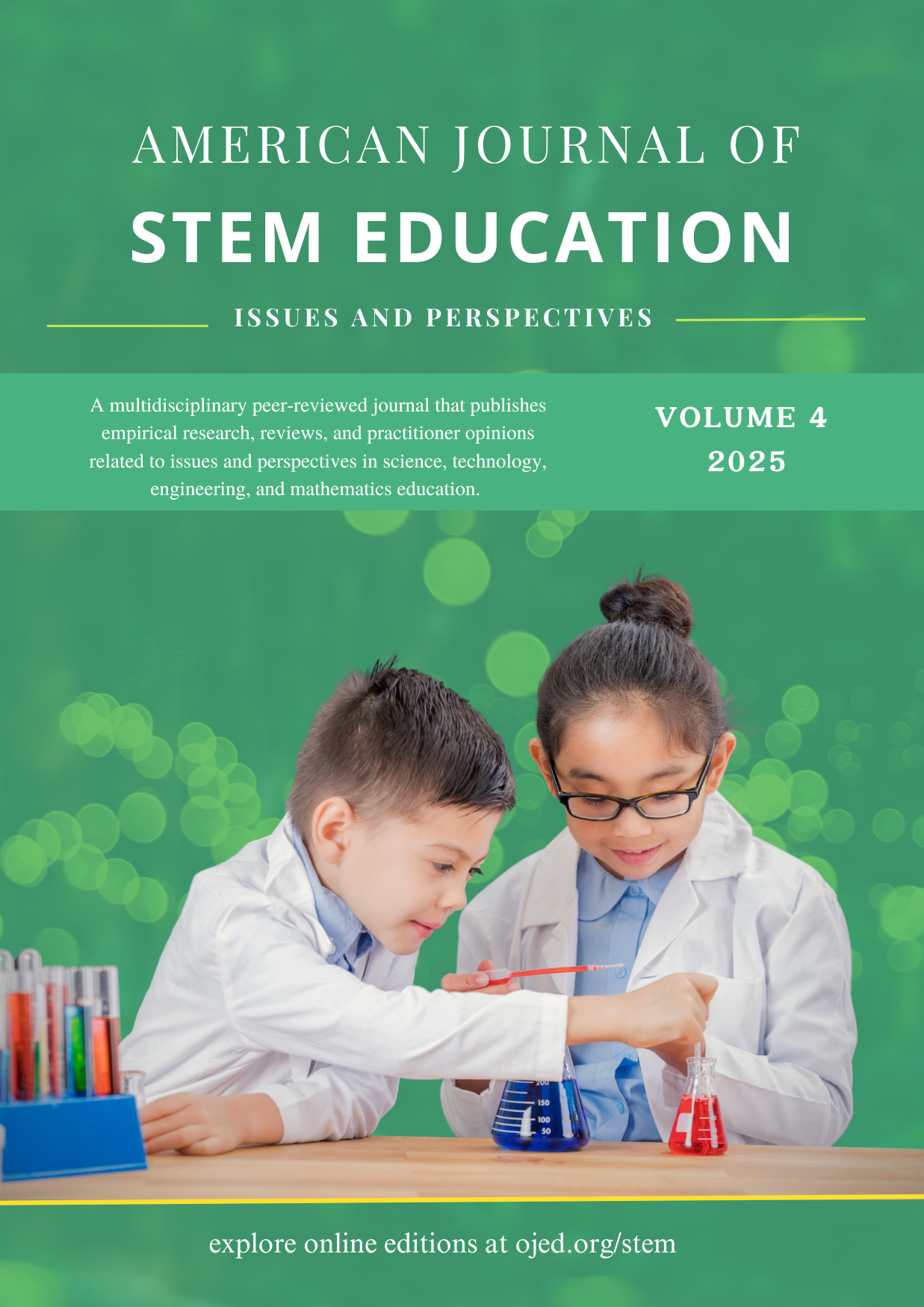
American Journal of STEM Education: Issues and Perspectives
Vol. 4 (2025)This issue presents a dynamic collection of articles exploring critical themes in STEM education. This issue examines the impact of the Verizon STEM Achievers Program on middle school students, AI's crisis of legitimacy in higher education, and the integration of ICT by English teachers in Nepal. It also addresses challenges of disembodiment in STEM curricula in Canadian classrooms, strategies for tackling racial inequities in AI tools like ChatGPT, and a framework for centering equity in STEM education. These thought-provoking contributions offer valuable insights for educators, researchers, and policymakers dedicated to fostering innovation and inclusion in STEM fields. Read the full issue online.
-
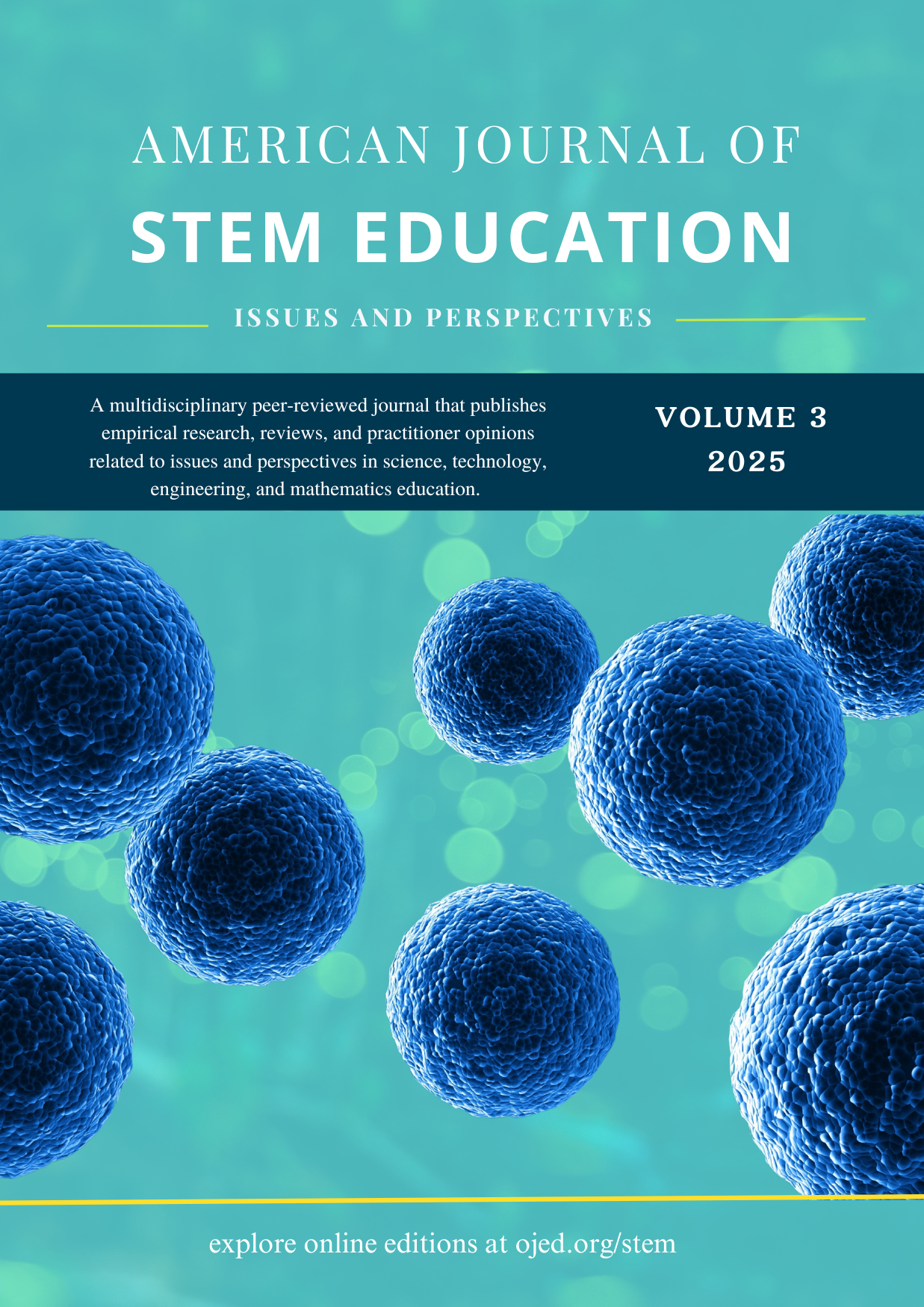
American Journal of STEM Education: Issues and Perspectives
Vol. 3 (2025)This issue explores critical topics such as the predictive relationship between students’ math anxiety and performance, the mediation effects of social support and psychological capital on academic stress and burnout, and a practical guide to writing review articles for novice researchers. Other highlights include the link between teaching variables and mathematics achievement in Ghana, the adversity quotient in mathematics learning, and the influence of demographic factors on test anxiety.
-
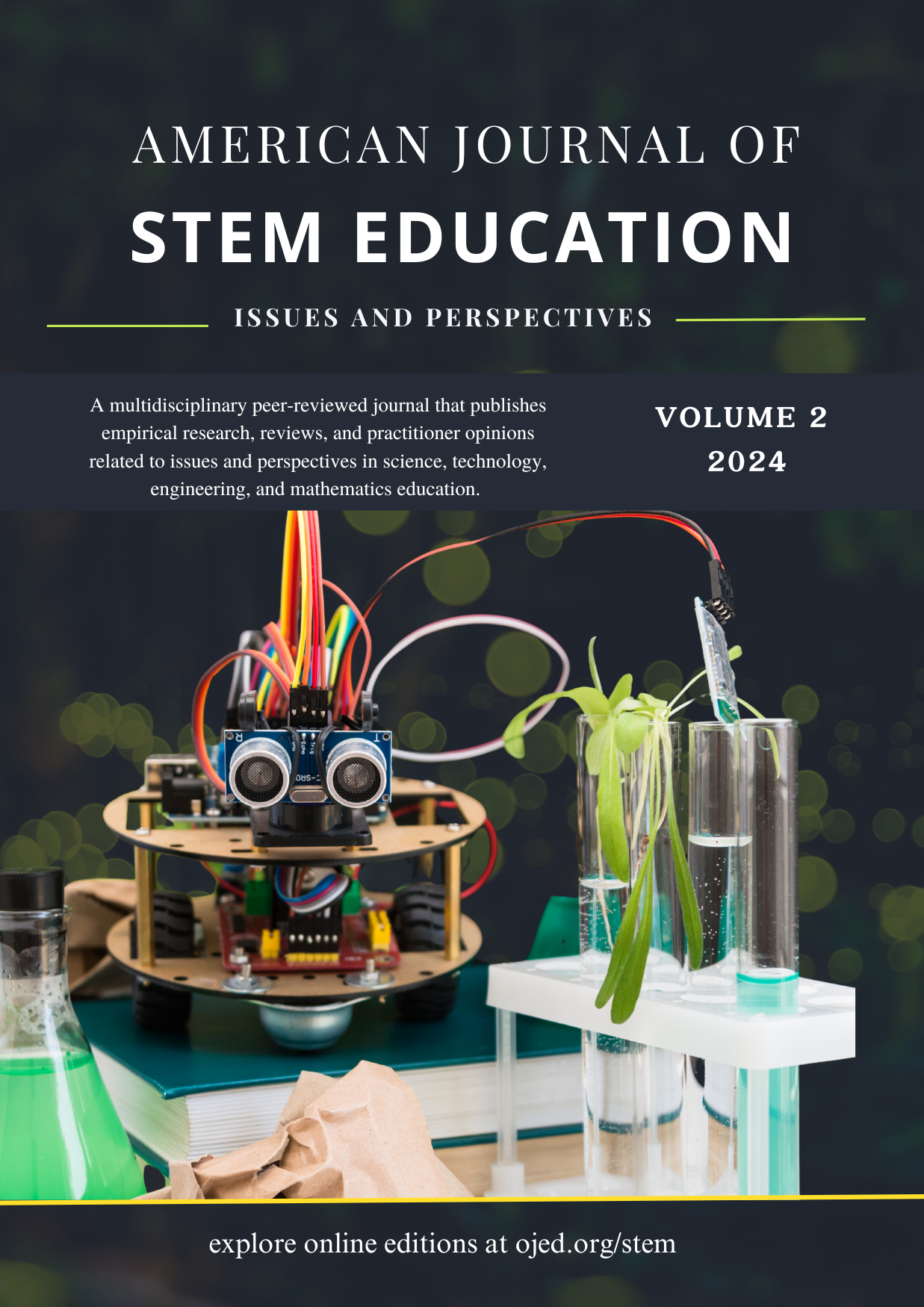
American Journal of STEM Education: Issues and Perspectives
Vol. 2 (2024)This issue examines the impact of workplace learning on employee performance in Singapore’s SMEs, rethinks fairness in classroom assessments through cultural dimensions, and offers a framework to analyze project management cognitive processes using MNE-Python. Additional highlights include insights into enhancing STEM learning through extracurricular activities in Japan, the inspirational impact of a STEMM simulation program on underprivileged middle school students, and school management strategies for fostering lifelong skills acquisition among STEM students in public secondary schools.
-
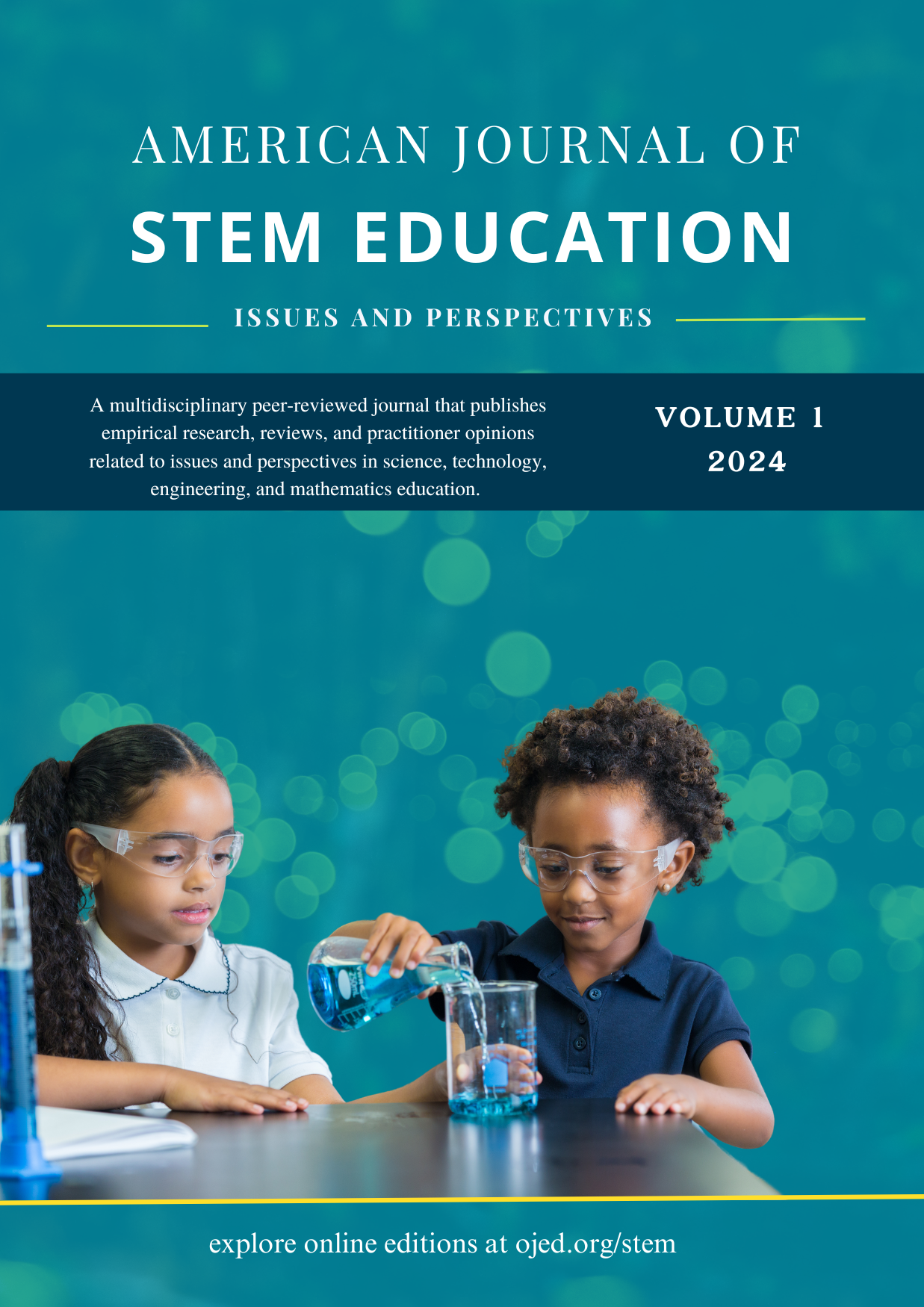
American Journal of STEM Education: Issues and Perspectives
Vol. 1 (2024)This issue features a diverse range of articles, including analyses of STEM graduation trends and educational reforms, the integration of multimedia in English language pedagogy for pre-service teachers, and equitable higher education administration in Nigeria. Other highlights explore tech-enhanced English instruction, the use of generative AI to enhance international education and the role of disruptive technologies in optimizing community college apprenticeships. A thought-provoking review on hybrid and remote work in higher education completes this landmark issue.
 Call for Special Issue Proposals
Call for Special Issue Proposals 

